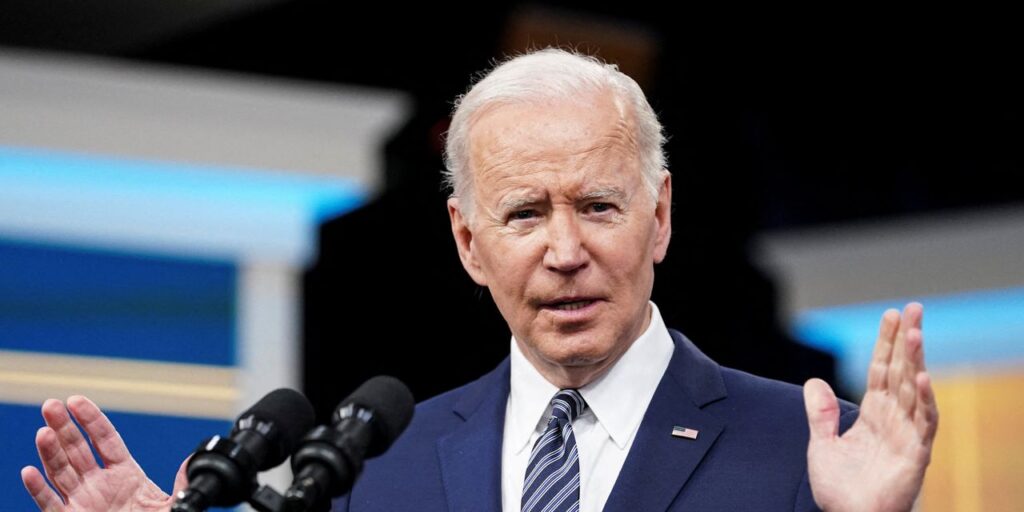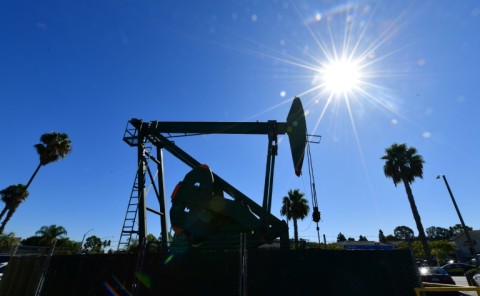Russia reported a sharp increase in revenue in the first quarter due in part to one-time tax payments and rising oil prices as the country continues to weather sanctions over its war in Ukraine.
Author of the article:
Bloomberg News
Bloomberg News
Published Apr 08, 2024 • Last updated 7 hours ago • 2 minute read
09a7195x35obpp)]ri068wbj_media_dl_1.png Source: Source: Russian Finance (Bloomberg) — Russia reported a sharp increase in revenue in the first quarter due in part to one-time tax payments and rising oil prices as the country continues to weather sanctions over its war in Ukraine.
Russia observed “sustained positive dynamics” in the flow of money to the federal budget, according to a Finance Ministry statement on Monday. Revenues for the three months through March amounted to 8.7 trillion rubles ($94 billion), an increase of 53.5% compared with the same period last year, data from the ministry showed.
THIS CONTENT IS RESERVED FOR SUBSCRIBERS ONLY
Subscribe now to read the latest news in your city and across Canada.
Exclusive articles from Barbara Shecter, Joe O’Connor, Gabriel Friedman, Victoria Wells and others. Daily content from Financial Times, the world’s leading global business publication. Unlimited online access to read articles from Financial Post, National Post and 15 news sites across Canada with one account. National Post ePaper, an electronic replica of the print edition to view on any device, share and comment on. Daily puzzles, including the New York Times Crossword. SUBSCRIBE TO UNLOCK MORE ARTICLES
Subscribe now to read the latest news in your city and across Canada.
Exclusive articles from Barbara Shecter, Joe O’Connor, Gabriel Friedman, Victoria Wells and others. Daily content from Financial Times, the world’s leading global business publication. Unlimited online access to read articles from Financial Post, National Post and 15 news sites across Canada with one account. National Post ePaper, an electronic replica of the print edition to view on any device, share and comment on. Daily puzzles, including the New York Times Crossword. REGISTER / SIGN IN TO UNLOCK MORE ARTICLES
Create an account or sign in to continue with your reading experience.
Access articles from across Canada with one account. Share your thoughts and join the conversation in the comments. Enjoy additional articles per month. Get email updates from your favourite authors. Sign In or Create an Account or
Article content
Article content
“The economy continues to grow at an impressive rate,” Bank of Russia Governor Elvira Nabiullina told lawmakers Monday in a speech to the country’s lower chamber of parliament.
Inflows from non-energy industries increased by 43% year-on-year, forming “a stable basis for further advancing income growth,” the Finance Ministry said. Payments of a “one-time nature” contributed significantly, including exit fees paid by foreign companies leaving Russia.
Oil and gas revenue grew rapidly, increasing by almost 80% on last year, boosted by rising prices as well as a one-time tax payment from oil companies.
Brent crude oil is trading above $90 a barrel on Monday, up almost 20% since the start of the year due to escalating geopolitical tensions and supply shocks.
Read More: Oil Rally Takes Breather With Israel to Pull Some Gaza Troops
In 2023, energy income decreased by 23.9% to 8.8 trillion rubles, despite the fact that budget revenue overall showed a slight increase compared with 2022. That was due in part to the European Union’s ban on most seaborne imports of crude and petroleum products from Russia, and the Group of Seven nations’ price caps, both intended to punish the country for its invasion of Ukraine.
Article content
“This situation is fundamentally different from the first quarter of 2023, when the average price of Russian Urals oil was only $48.92 per barrel and the ruble exchange rate was significantly stronger than now,” said Olga Belenkaya, an economist at Finam in Moscow.
The Finance Ministry based the budget on a projection of an $85 per barrel average price for Brent oil in 2024. If prices remain high, which seem likely given Opec+ supply restrictions and increased geopolitical risks, then the ministry gets closer to hitting its revenue targets that once seemed optimistic, she said.
“In terms of income, oil and gas did not surprise,” said Sofya Donets, an economist at Renaissance Capital. “The non-oil-and-gas sectors show strong dynamics and were somewhat ahead of our expectations.”
Read more: Russia’s Economy Picked Up in Early 2024 on Consumers, Exports
Russia has posted a budget deficit since the end of 2022, as war costs from President Vladimir Putin’s invasion of Ukraine weigh heavily on state finances.
Spending in the first quarter of 2024 increased by 20% compared with last year. At the end of the period, the budget deficit amounted to 607 billion rubles, which is 1.5 trillion rubles smaller than where it stood at the end the first quarter of 2023.
(Updates with comment from central bank governor in third paragraph, and from analyst in eighth and ninth paragraphs.)
Article content
https://financialpost.com/pmn/business-pmn/russias-revenue-jumps-in-first-quarter-amid-rising-oil-prices




